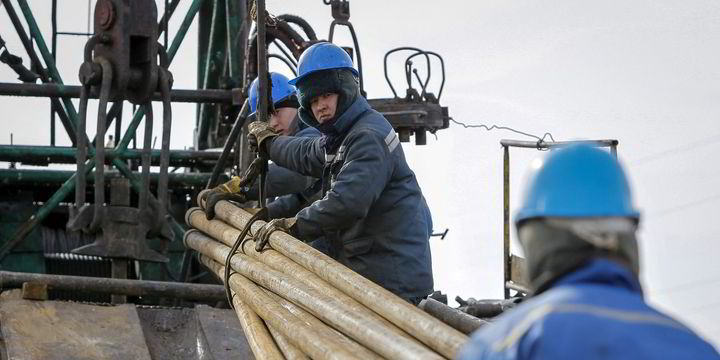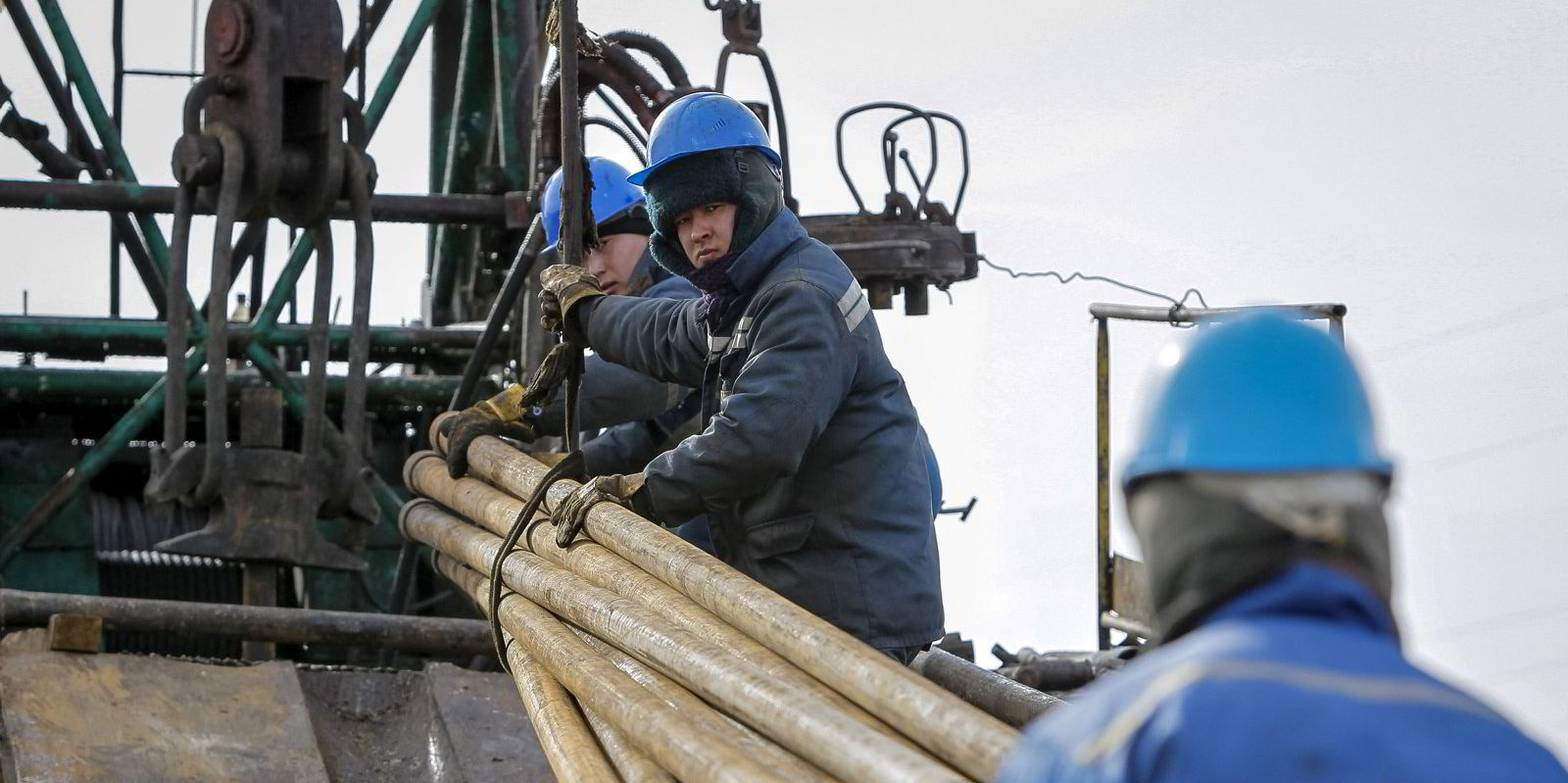State-run oil producer KazMunayGaz has reported declining revenues and net profit in the first quarter, despite favourable export markets and improved output from one of Kazakhstan’s foreign-led developments, Kashagan.
Kazakhstan state-run oil producer KazMunayGaz has reported declining revenues and net profit in the first quarter, despite favourable export markets and improved output from one of the country’s foreign-led developments, Kashagan.
The country has the 12th-highest proven crude reserves in the world and is the largest oil producer in Central Asia, according to the International Energy Agency.
Revenues fell by 14% to almost 1.9 trillion tenge ($4.24 billion), while net profit declined by 13% to 288 billion tenge in the first quarter of this year against the same period of 2022, KazMunayGaz said.
However, its oil and condensate production increased by almost 9% to more than 500,000 barrels per day as output at Kashagan more than doubled compared with a year earlier.
Article continues below the advert
KazMunayGaz has a stake of almost 17% in the Kashagan oilfield in the shallow waters of the Kazakh sector of the Caspian Sea, which translates into a net 70,000 bpd to the company.
It also increased output at some of its wholly owned legacy onshore assets, where subsidiaries Ozenmunaygaz, Mangistaumunaygaz and Embamunaygaz overcame challenges at exhausted brownfield assets to report a combined by 3% boost to 226,000 bpd.
KazMunayGaz conceded that its overall financial performance was improved by significant profits at its refining and oil pipeline transportation segments.
Earnings before income tax, appreciation and amortisation (EBITDA) at these two segments jumped to $436 million in the first quarter from $132 million a year earlier.
EBITDA from oil pipeline transportation is expected to improve further in the second half of this year, with subsidiary KazTransoil announcing a 15% increase in oil export shipping tariffs for Kazakh producers from 1 July, according to the company.
However, EBITDA at its upstream segment declined to $871 billion in the reporting period from $1.22 billion in the first three months of 2022, it added.
Kazakh oil welcomed in Europe
KazMunayGaz said it has been able to export crude via the Russian ports of Novorossiysk and Ust-Luga at a significant premium to Russia’s Urals export blend, even though Kazakh oil mingles with Russian crude once it enters the country’s pipeline network, and has the same density and sour content as Urals.
KazMunayGaz said that on average, Kazakh oil was sold at Novorossiysk and Ust-Luga for about $78 per barrel in the first quarter, while Urals averaged just over $51 per barrel.
The European Union embargo on Russian oil imports, coupled with a G7-approved price cap introduced in response to Russia’s invasion of Ukraine last year have prompted Russian producers to redirect export shipments to Asia.
These volumes are sold at a steep discount to compensate for higher shipping and insurance costs, and a greater risk for buyers, as they could fall under international sanctions imposed against Moscow.
However, there are no restrictions on Kazakhstan’s oil shipments from Russian ports, with Kazakh crude labelled Kebco to differentiate it from Urals.
Kashagan production issues
KazMunayGaz did not provide an outlook for its operational and financial performance for the second quarter, or the continuing technical issues that have had an impact on the pace of production at Kashagan.
According to the energy ministry, national oil production has declined by almost 6% since 20 May to 1.82 million bpd on 29 May.
Kashagan operator North Caspian Operation Company said last week that it shut two offshore injection wells on 20 May at its offshore production island in the Caspian Sea following the detection of hydrogen sulphide during routine sampling.
Integrity test and further surveys will be carried out during the shutdown, with oil production reduced as the reinjection of sour gas, containing hydrogen sulphide, has been curtailed, the operator said.

